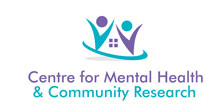
Professor Sinéad McGilloway
Professor of Family and Community Mental Health and Founder Director of the Centre for Mental Health and Community Research
Having a parent with a mental health challenge can have a very negative impact on children, both in the short and longer-term. However, a new programme in Ireland shows that there is support available to help these families.
Approximately one in five children (aged <18) live in families with a parent who has a mental health illness, and parental mental ill health typically affects the entire family.
Impact of parental mental ill health on children and families
Research has shown that children of parents with a mental illness (PMI) have a 41%–77% lifetime risk of developing moderate to serious mental illness themselves, as well as other negative physical, psychological and social impacts. They are also five times more likely to use health and social services while 35%–60% are already in contact with mental health services before they reach the age of 18.
These children often feel overwhelmed, confused, fearful, worried and/or ashamed/stigmatised about their parent’s mental health issues, while many of the unwell parents report fear, guilt and stigma associated with their parenting role.
What are we doing in Ireland to support these families?
In Ireland, unlike many other European countries, there is no service-related or policy guidance on how to identify and support these vulnerable families. As a result, they often remain ‘invisible’ and unsupported due to, for example, the typically segregated and crisis-oriented ways in which adult and child mental health services work and a lack of approaches/programmes that focus on the whole family as opposed to the treatment of any single family member in isolation.
Why children need evidence-based support
“While the overwhelming majority of children living with an adult with mental health problems are loved and well cared for, that does not mean that the circumstances such children find themselves in … does not have an impact on them.” (Devaney et al., 2020).
So, what can we do to help? Our PRIMERA (Promoting Research and Innovation in Mental hEalth seRvices for fAmilies) research, funded by the HSE from 2017–2022, investigated how best we can support Irish families (with children <18) where a parent has a diagnosed mental illness.
Approximately one in five children
(aged <18) live in families with a parent
who has a mental health illness.
Programme delivered by professionals
We identified, and then helped to implement, a US-developed programme called Family Talk (FT), which has been used in a number of countries across the world with positive results for both children and parents. This is a whole-family, seven-session, strengths-based (free) programme that can be delivered weekly by mental health clinicians (eg. social workers, family therapists, primary care psychologists) to help improve family understanding and communication around PMI and to enhance family resilience and social support.
Results on programme effectiveness
We investigated the effectiveness of FT by recruiting families to take part in the programme and assessing how they fared over time. Our results were based on 83 families (83 parents and 83 children aged 7–18) across 10 sites. Those who took part in the FT programme, compared to those who received usual services, reported:
- Fewer child behavioural problems
- Improved family relationships/functioning
- Better mental health literacy (ie. knowledge/understanding) in parents
- Improved parental and child mental health when more partner and economic support was available.
Approximately two-thirds of families who took part in separate interviews also reported:
- Reduced stigma
- The importance of giving children and partners a voice to express their concerns (often for the first time)
- Increased confidence and wellbeing in the unwell parent.
Bringing the programme to more families in Ireland
The programme also offers good value for money, costing only €307 per family when only recurring (versus setup) costs are considered. Overall, our results indicate that the Family Talk programme can be used successfully in an Irish context to support (young) families experiencing PMI.
However, more work is needed to address barriers to the delivery and sustainability of such programmes. Most importantly, a ‘think family’ Government policy plus appropriate practice standards/guidelines and resources are needed to ensure that mental health services in Ireland can implement sustainable family-focused practice and support.
The Maynooth University PRIMERA team members include Dr Mairead Furlong, Christine Mulligan, Sharon McGarr, Dr Colm McGuinness, Dr Nuala Whelan and Dr Siobhan O’Connor. More information can be found at cmhcr.eu/primera-programme/?et_fb=1&PageSpeed=off
Many thanks to all participating families and to our collaborating partners including, in particular, the HSE and Tusla.



